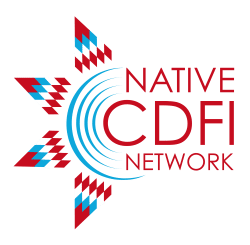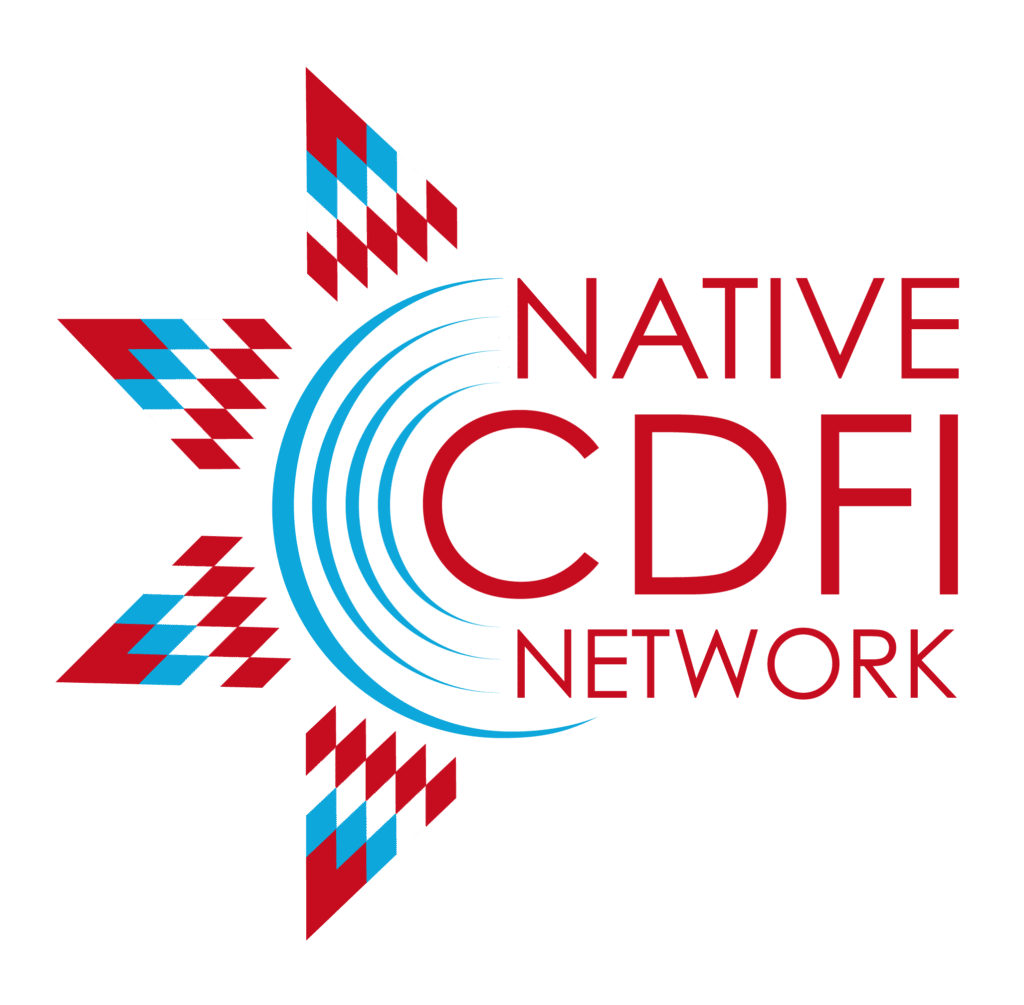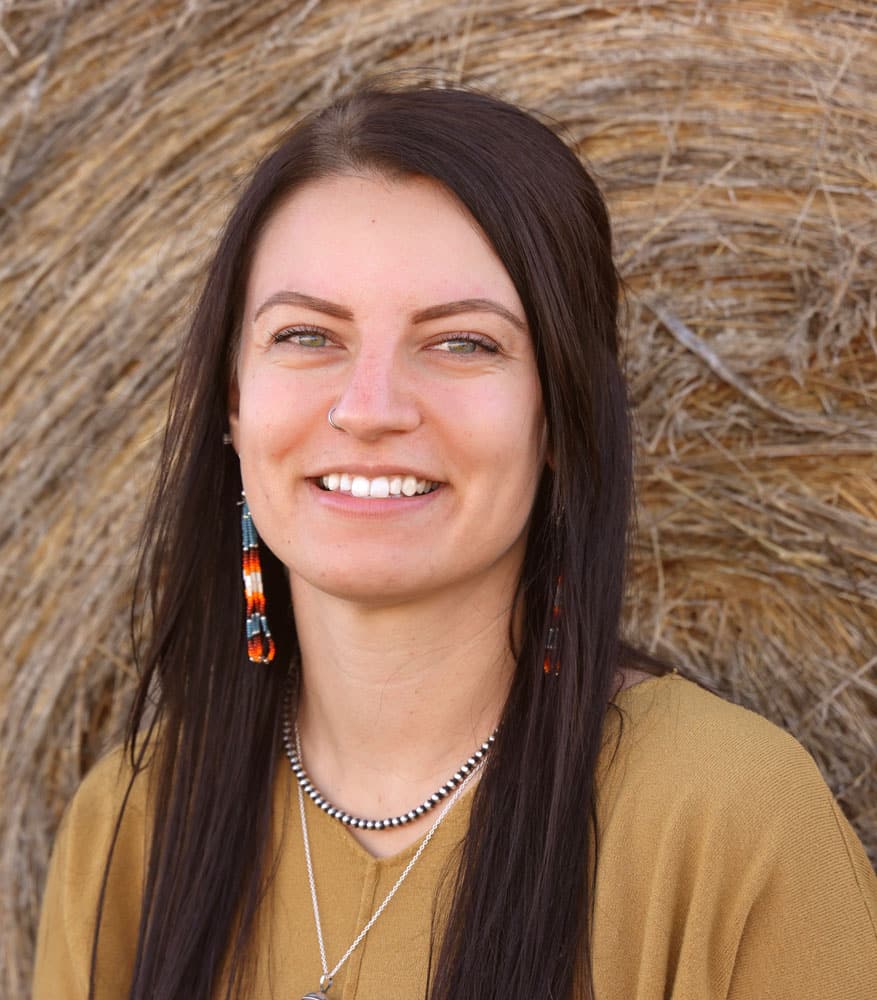
Skya spent the first 18 years of her life on a ranch on the Cheyenne River Sioux Tribe Reservation. After graduating high school and obtaining a bachelor’s degree in Business Administration from Black Hills State University, she worked for the Intertribal Agriculture Council as an intern and then as a Project Coordinator, where she was introduced to the Native CDFI world. Skya then played an instrumental role in creating Akiptan, the first national Native CDFI dedicated exclusively to Indian agriculture. In 2019, she obtained her master’s degree in Business Administration from Capella University.
In this lively conversation with NCN, Skya shares her ranching upbringing, her role in creating Akiptan, and her perspectives on the importance of Native CDFIs partnering with Native small business owners such as agricultural producers to help them achieve their dreams.
NCN: Why do you do what you do? How did you come to lead Akiptan CDFI?
Ducheneaux: I’ve been fortunate enough to stumble into some good situations, and that’s how I got this position. I grew up on a ranch on the east end of our rez, a cattle ranch, and when I turned 18 I thought to myself, “I never want to work this hard again in my life. I never want to see another cow. I’m going to school and getting a business degree because you never use business in agriculture.” How naive I was, but that’s where I was at 18. Then I went to college and I really started missing the people in the agriculture industry – not the work. I still don’t want to work that hard. I like my climate-controlled office (laughs). But I missed the industry and the people in the industry. In the summers of 2014 and 2015, I was fortunate enough to intern for the Intertribal Agriculture Council [IAC]. And then when I graduated with my undergraduate degree in 2017, I wanted to move home and work in an office. I didn’t want a ranch, but I wanted to move home because I really missed home and the environment here. So Zach Ducheneaux and Ross Racine with IAC offered me a position to create this CDFI. I said, “Heck yeah, I’ll take it.” I spent all of 2018 going to conferences and trainings to learn what a CDFI was, how we wanted to do Akiptan differently, how to balance producer prosperity with lender security, how to practice patient capital, and how to make lending Indigenous, because it is not Indigenous. We officially launched in 2019. This is not where 18-year-old Skya thought she would be at all, but I am very glad I am here. I am so happy I took this chance.
NCN: As you know, there are more than 70 federally certified Native CDFIs across the country and many more “emerging” CDFIs following in their footsteps. Why did Native communities feel it necessary to create CDFIs, and what fundamental role do they play?
Ducheneaux: The cool thing about Native CDFIs is we have dirty boots. We are active members of our communities. We know what it’s like out there, and we live that experience every day with our clients, and we don’t ever forget what it’s like. So we continue to work hard for our community members, for our producers, for our small businesses. When you have that lived experience, you’re in a unique position to create solutions that actually work for Indian Country. It’s not just a pie-in-the-sky dream. You’re able to do 95% good work and 5% fluff stuff, because it’s all very relevant. That’s what makes Native CDFIs absolutely critical to Indian Country. We’re so flexible and we’re always willing to meet the needs of our community members as many times as those change and pivot. For example, some Native CDFIs have never done ag [agriculture] lending, but they get one inquiry and they’re like, “Well, we do ag lending now.” Or when the government shut down, they were doing short-term loans to meet those needs for the federal employees on the rez because that’s such a huge demographic. They need a lot of youth curriculum and youth education in the community, so they pivot to meet that need. There’s nothing Native CDFIs can’t do.
“The cool thing about Native CDFIs is we have dirty boots. We know what it’s like out there, and we live that experience every day with our clients… When you have that lived experience, you’re in a unique position to create solutions that actually work for Indian Country.”
NCN: What do policymakers and the general public need to understand about Native CDFIs and the difference they make?
Ducheneaux: It goes back to what I said before – we do 95% work in the trenches and 5% fluff stuff, and that 5% of fluff stuff is where we’re doing like the marketing and the advertising and related work. But we’re out there doing the work, not talking about it. We’re out there putting our money where our mouth is. That is great for our community members, but it’s not always great for advertising the industry, right? Native CDFIs have such a deep and broad footprint, but we don’t even realize it because we just do the work. We’re too humble to brag about what we’re doing. That’s where the gap is, so Akiptan has had to make a conscious effort to be better about our marketing and advertising, to be able to reach out to do more fundraising. Our marketing strategy for our producers is mostly just word of mouth. That’s what works best in Indian Country, so we don’t spend a lot of time doing all this crazy fluff stuff because that’s not our core demographic. But we need to be able to attract investors. We are a critical industry that doesn’t always get the recognition because we’re just out there doing it. We’re not asking for praise.
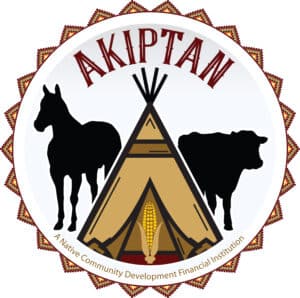
Ducheneaux: When I started at Akiptan, the only thing that had been created at that point was the name. We had to build the policies from the ground. The name is really reflective of our lending philosophy and how we treat our producers. So “Akiptan” is one word for cooperatively doing something together. We genuinely believe in treating our producers as partners as opposed to borrowers, because their success is our success. We want to set them up as best as we can. It’s not like, “I’m the lender and you’re the borrower, and I see that you’re going to clear $30,000. Our loan payment is going to be $29,999.99.” It’s, “What can we do together so that you can be successful at your operation?” We focus on the relational side just as much as the transactional side. We do quarterly check-ins with them that are really informal. We really make the effort to create that relationship and be more helpful to the producer, and we do that through a joint effort. We believe in bringing a chair to the table for them so they can be a part of the decisions. It’s their operations and their dreams, so why shouldn’t they get to be a part of the decisions? We’re not just telling them what to do, and that way they’re working hard in the spirit of their dreams versus out of fear of the lender. It just changes that dynamic. We make sure to stick to that 100% in everything we do.
NCN: Akiptan’s mission “is to transform Native agriculture and food economies by delivering creative capital, leading paradigm changes, and enhancing producer prosperity across Indian Country.” What does that look like in practice in terms of the specific activities Akiptan engages in?
Ducheneaux: The first part, creative capital, Akiptan will go up to five years interest-only – super patient capital. Often if you go to the bank for anything agriculture related, because agriculture has so much perceived risk, they do short terms, high repayment, high interest, and then displace all of the risk on to the producer, making it harder for them to succeed. We take a step back and do things a bit differently. We’re more creative with our patient capital. When they have up to five years interest-only, or if they’re even making blended payments and if it’s patient enough and low enough, they’re able to take those profits and reinvest them back into their operation. They can buy more livestock with their profits or retain more livestock. Instead of having to sell things all the time, they’re able to upgrade their infrastructure and equipment with their profits instead of having to take out more loans. They’re able to make those upgrades, which in turn makes their operation more effective and efficient and enhances their cash flow by growing their assets.
The next part of the mission is leading paradigm changes because we are not gatekeeping over here at Akiptan. We are happy to share our secrets of success in everything we have learned. We want to show there is more than one way to do lending. Come check out what we’ve been doing and see if this is going to work for you at your operation, if you guys can have the success we’re having. It’s about changing the industry of not just agriculture finance or Native finance but finance as a whole by leading the charge and putting our money where our mouth is and showing them that it’s been working great for us and our producers.
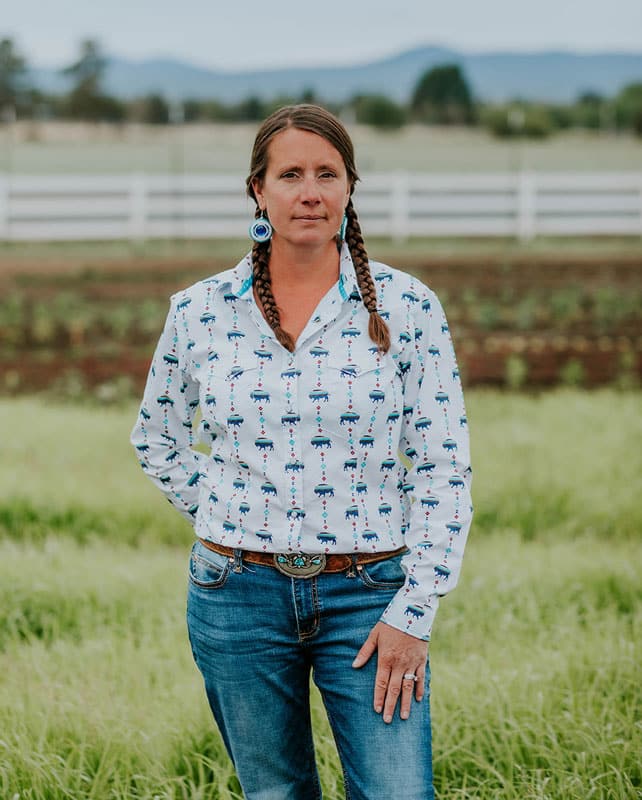
With enhancing producer prosperity, we want to make sure producers are at the forefront of everything that we do. Because that’s what we’re out here for every day, is making sure our producers succeed. We are here for them. We’re not here for ourselves.
NCN: Akiptan has helped an extraordinary number of people. Is there an individual’s client success story that really sticks out to you, that really inspires you?
Ducheneaux: Those first loans I did will always have a special place in my heart. One of our very first clients was Spring Schreiner. She’s an amazing producer out in Bend, Oregon just off the Warm Springs rez. She was a vegetable grower and she had a small value-added line where she would sell herbal teas and stuff like that. She came to us for a loan for a greenhouse because she’s in the high desert. It was going to expand her growing season. It created a climate-controlled environment so her crops would do better, which would help increase her profits. Not only does she grow produce and sell it, she gives back to her local tribe and she teaches seed saving. So we set her up with our interest-only loan, and with her profits, she was able to purchase two or three more greenhouses. She then came back to us for financing for a commercial kitchen so she could do more value-added products. The operation started out as a part-time gig for her and her partner, and now it is full-time. They’re hiring employees, they’re giving back more, they’re teaching more. It just goes to show what a little bit of patient capital and a really determined producer can do!
NCN: From your perspective, what do Native CDFIs like yours need to realize their full potential? What support do they need to achieve their missions and maximize their impact?
Ducheneaux: We just need people to believe in us as much as we believe in our producers. We need policy change to have more access to different funding sources and different programs. We need foundations to treat us like thought partners when they’re looking at investing or granting to us. There needs to be more trust-based philanthropy because we’re out there in the trenches. We know exactly what our community needs. I preach this all the time. It’s a soapbox message of mine. Since colonization, Indian Country has been prescribed solutions because we are perceived as broken and someone from the government will come in and be like, “Oh, you’re broken or you’re poor. Let me give you these commodity boxes or let me give you this housing program.” We’re just prescribed these solutions without any input from our side. We have the right to self-determine our solutions. So we need a seat at the table all of the time when we’re talking about how to “fix” – I say “fix” sarcastically – Indian Country, because Indian Country isn’t broken. We’re just a little bit different than our non-Native counterparts. We don’t need somebody to come in and save us. We can save ourselves. We just need the proper access to resources. We haven’t always had resources, but we have amazing individuals that are incredibly determined. We just need equitable access to resources. That’s what it boils down to.
To learn more about Akiptan, please click here.
